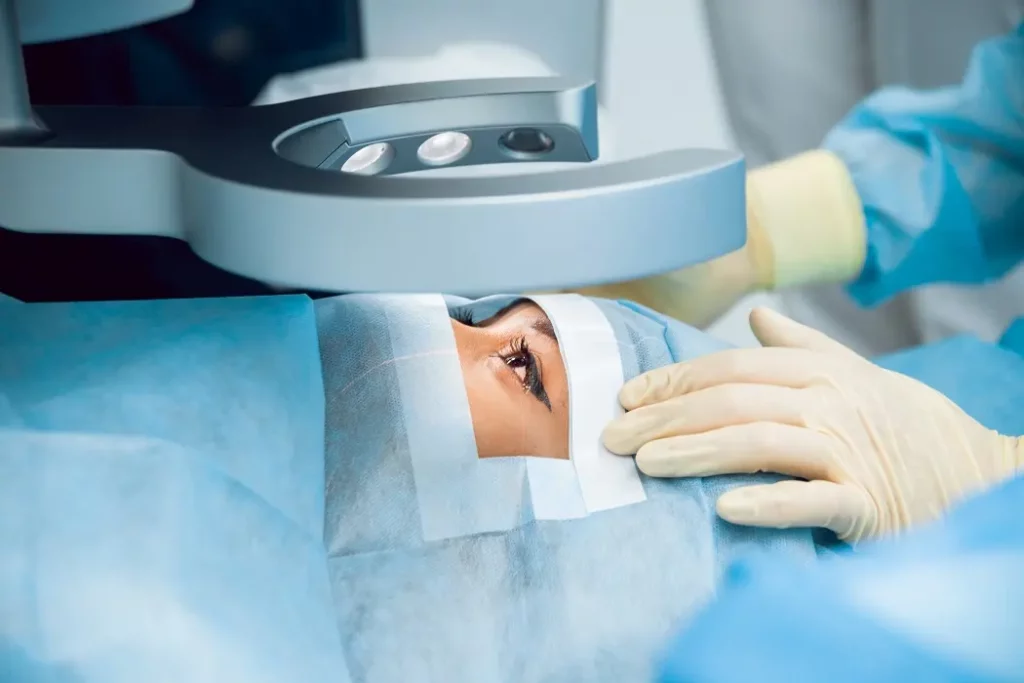All Categories
Featured
Table of Contents
Eye health is a critical part of total wellness, and normal eye exams play a vital duty in preserving great vision throughout life. Each age group has certain demands and threats connected to eye wellness, making it vital to comply with customized referrals for eye assessments. Below's an in-depth summary of exactly how frequently eye tests ought to be set up for different age.
After the initial test, children need to have a second eye exam around age 3, when they can much better take part in testing and assessment. If no vision troubles are identified, the following exam is advised prior to beginning institution, generally around age five. Early detection of issues can bring about prompt intervention and support healthy and balanced visual development.
Parents must try to find signs of vision troubles, such as problem checking out the chalkboard, scrunching up your eyes, or complaining of migraines. It's vital to set up an eye exam quickly if any of these symptoms develop. Kids that take part in sporting activities might benefit from annual eye exams to make sure optimal visual efficiency and safety throughout activities.
![]()
Young adults frequently experience digital eye strain because of considerable screen time, resulting in signs like dryness and pain. If you discover these symptoms, seeking an eye test is crucial. An eye care specialist can provide remedies, such as computer system glasses or lifestyle modifications, to reduce strain.
For people with health and wellness conditions like diabetes or hypertension, more frequent tests might be needed. Routine surveillance is important for early detection and management of potential issues that can affect vision.
Elders might likewise experience adjustments in their visual perception, such as problem seeing in low light or identifying colors. Routine eye tests permit timely treatment and aid preserve self-reliance and quality of life.
Infants (0-2 Years)
Babies undergo considerable aesthetic development in their very early years, making early eye examinations essential. The American Academy of Pediatrics advises that infants have their initial eye examination at regarding six months old. This first check out aids identify any potential vision troubles, such as strabismus (crossed eyes) or hereditary cataracts, which can influence development otherwise resolved early.After the initial test, children need to have a second eye exam around age 3, when they can much better take part in testing and assessment. If no vision troubles are identified, the following exam is advised prior to beginning institution, generally around age five. Early detection of issues can bring about prompt intervention and support healthy and balanced visual development.
Children (3-18 Years)
For school-aged youngsters, normal eye exams are essential for both academic success and basic health. Kids should have their eyes inspected every one to 2 years, depending on their specific needs. Schools often conduct vision screenings, yet these do not change thorough eye tests by an eye care expert.Parents must try to find signs of vision troubles, such as problem checking out the chalkboard, scrunching up your eyes, or complaining of migraines. It's vital to set up an eye exam quickly if any of these symptoms develop. Kids that take part in sporting activities might benefit from annual eye exams to make sure optimal visual efficiency and safety throughout activities.
Young Grownups (19-39 Years)
During young adulthood, several individuals delight in relatively stable vision, yet that does not indicate eye care can be disregarded. Young adults should schedule thorough eye exams every 2 years. Those that put on call lenses or have a household background of eye condition should take into consideration yearly tests.
Young adults frequently experience digital eye strain because of considerable screen time, resulting in signs like dryness and pain. If you discover these symptoms, seeking an eye test is crucial. An eye care specialist can provide remedies, such as computer system glasses or lifestyle modifications, to reduce strain.
Adults (40-64 Years)
As individuals enter their 40s, modifications in vision can become more noticeable, specifically presbyopia, a problem that makes it testing to concentrate on close objects. Grownups in this age team need to set up eye examinations every one to two years. This is additionally the age when numerous eye illness, such as glaucoma and diabetic retinopathy, can start to develop.For people with health and wellness conditions like diabetes or hypertension, more frequent tests might be needed. Routine surveillance is important for early detection and management of potential issues that can affect vision.
Seniors (65 Years and Older)
Elders go to an increased threat for different eye diseases, including cataracts, age-related macular deterioration, and glaucoma. It's recommended that people aged 65 and older have an eye exam a minimum of as soon as a year. Early discovery of these problems is crucial, as lots of can be dealt with successfully if captured early.Elders might likewise experience adjustments in their visual perception, such as problem seeing in low light or identifying colors. Routine eye tests permit timely treatment and aid preserve self-reliance and quality of life.
Conclusion.
Focusing on eye treatment and regular exams guarantees that people can enjoy clear vision and a better quality of life, making eye health and wellness a vital facet of long-lasting health. Routine appointments with an eye treatment professional will certainly lead the way for healthier eyes and a brighter future.Latest Posts
Improve Your Home with Overhead Door Solution
Published May 23, 25
1 min read
Understanding Roof Covering Guarantees: What Homeowners Ought To Know
Published May 22, 25
1 min read
How Consistent Auto Maintenance at Montclare Auto Repair Saves You Money
Published May 22, 25
1 min read